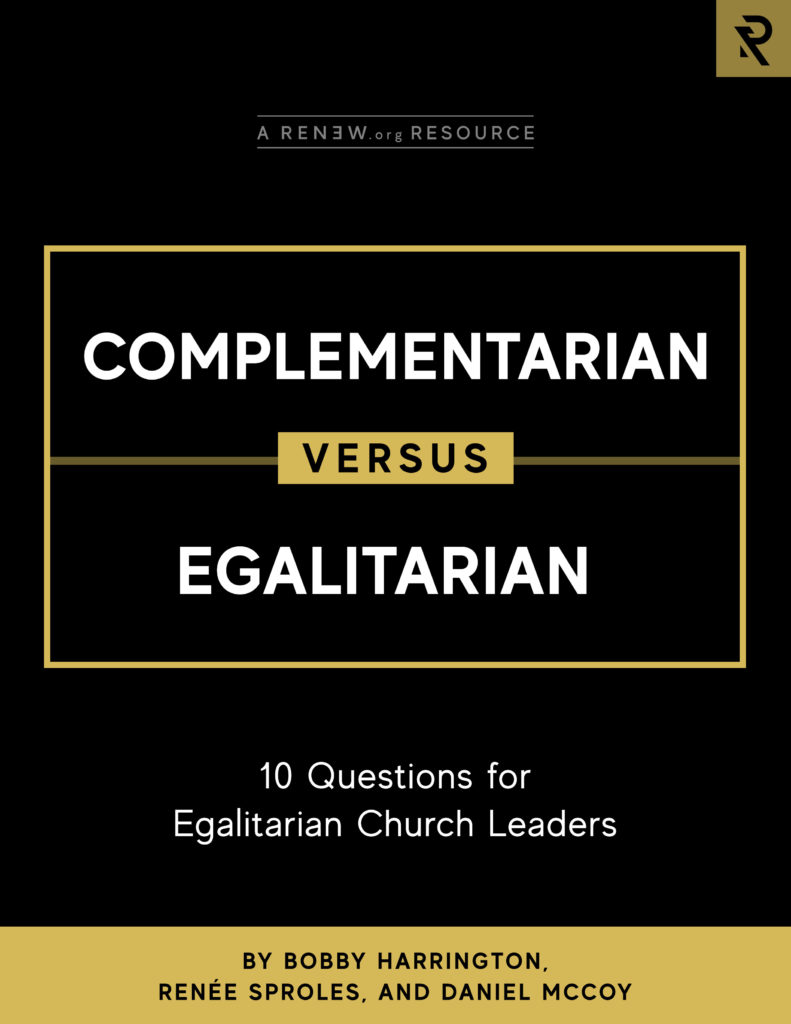
Complementarian Versus Egalitarian: 10 Questions for Egalitarian Church Leaders
When it comes to the complementarian versus egalitarian debate in the church and home, there are 10 questions to consider which get at the heart of egalitarianism and its implications. These 10 questions will help you delve into important areas such as
- the teachings of the earliest church leaders
- the proper starting point in these discussions
- the historical backdrop to New Testament church positions
- the intersection of hermeneutics and cultural trajectories
- and other crucial areas in this important debate
From the introduction to this ebook:
If you are a church leader leaning toward an egalitarian approach to men and women in church leadership, we want to engage you in a deeper conversation on the implications of an egalitarian approach. We acknowledge that there is so much pressure to adopt egalitarianism and there are many writings by good scholars that advocate methods of interpretation that will help you get there. We understand how easy it is to adopt this viewpoint. But we are asking these 10 questions to help you see if the egalitarian approach is really, truly taught in God’s Word.
“We are asking these 10 questions to help you see if the egalitarian approach is really, truly taught in God’s Word.”
Male headship is the doctrine that men have a unique responsibility for leadership in the home and church. There are an increasing number of Christians who reject this belief, seeing it as an unnecessary barrier to reaching a people in our culture which has long recognized the equal giftedness of men and women in the workforce and home. It is becoming hard for many to justify anything less than egalitarianism in the local church.
In Western culture, many see churches which insist on male-only elders and senior ministers/pastors as behind the times at best, but increasingly more cynically as men cloaking their hunger for male power in a guise of faithfulness to the Bible.
Many call such churches misogynistic(hating women). All the while, there are more and more churches of influence to point to in the evangelical community who are abandoning male headship for an egalitarian approach to leadership based on giftedness, not on gender.
“Does male headship only feel like faithfulness in the minds of conservatives?”
Does male headship only feel like faithfulness in the minds of conservatives—when it’s really just a tradition or unnecessary barrier between an egalitarian culture and the church?
For an article version of this ebook on the complementarian versus egalitarian debate, click here.









